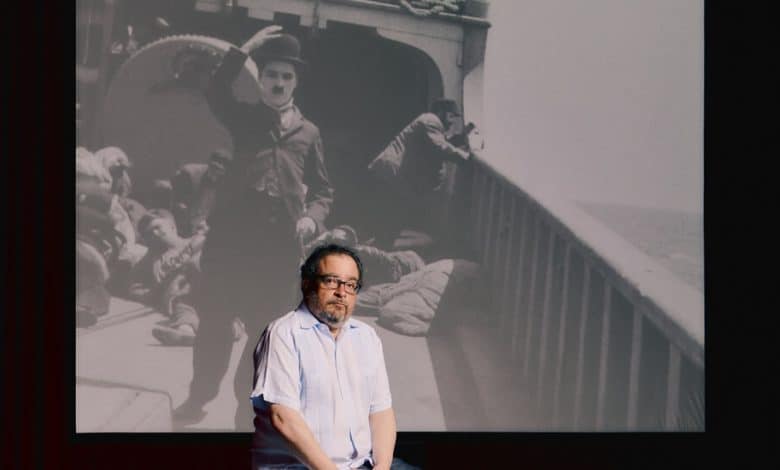From the Darién Gap to ‘The Great Dictator’

Some common jobs of recent Venezuelan migrants in New York: delivering meals or washing dishes; cleaning house or minding children.
And then there’s the uncommon work that eight such migrants got, for something like two weeks this past winter: watching comedies by Charlie Chaplin about migration, poverty and dictatorship; working up a screenplay that riffed on those movies; finally, playing the roles of both the downtrodden in Chaplin and also their oppressors, in a peculiar art film called “Amerika” that came out of their group effort.
The film is screening in a Greenwich Village space called the Center for Art, Research and Alliances, as the centerpiece in a solo show by the Venezuelan New Yorker Javier Téllez. Although his films and videos have made him a favorite in museums and nonprofits abroad, it’s been almost two decades since he’s appeared alone in such a space in New York.
It was thanks to Téllez that those eight new New Yorkers, normally under the thumb of DoorDash and Uber Eats, got paid to shape art that’s about what it means to have power. “If you can reverse the order, at least even as a representation, you’re creating a model that could inspire people to change,” Téllez said. He is careful to refer to his eight migrant hires — Andreina Arias, José Díaz, Luisandra Escalona, Leonardo Mesa, Nazareth Merentes, Jesús Ramírez, Omar Ríos Castellanos, Mariana Vargas — as “collaborators,” not as “cast” or “crew,” so the reversal he mentions has to do with power in the art world as well as beyond it.
Téllez is 55, a large, jovial man with glasses and a shaggy salt-and-pepper beard who could easily be cast as any Latin American poet or professor. He speaks like a mix of the two, letting out such a torrent of thoughts that his meaning can be hard to catch. Téllez discussed his art and ideas in a cafe around the corner from CARA, which paid the bills for his migrant project and had just finished installing it.
